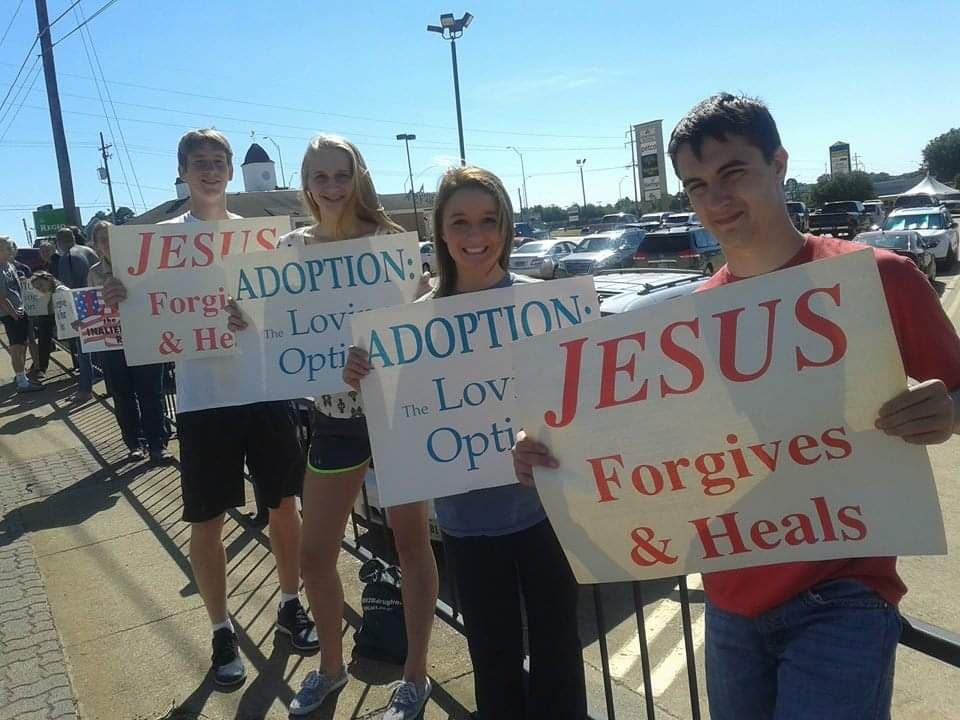If you haven’t heard of Right To Life of East Texas (RTLET), you’ve been missing out on a movement that’s been helping to protect preborn babies at the local level in our state.
Founded in 1976 and based in Longview, RTLET has been part of a growing local movement to stop abortion in cities across the state. Since June 2019, starting in the small town of Waskom, they led a drive for city governments to ban the practice of killing children, and as of now, 21 cities have done so.
This May, voters in Lubbock will have a chance to make their city No. 22.
RTLET also holds their annual “Celebration of Life” banquet, where they award scholarships to high school students who have written essays on their pro-life convictions. The organization also hosts “Unborn Truth” conferences, where they “educate, equip, and encourage” citizens who want to help defend life.
RTLET has thousands of members, with many chapters working together. Vice President Mark Lee Dickson took time to tell Texas Scorecard what RTLET is about and how citizens can help the cause.
“Not one of us is paid for the work that we do,” Dickson said. “All of us serve as volunteers of the organization.”
“We are an educational organization which seeks to promote respect for the worth and dignity of all human life, regardless of someone’s age or physical and mental competence, from the point of conception until natural death,” he explained.
RTLET utilizes different methods, “including promoting, encouraging, and sponsoring any amendatory and statutory measures which provide protection for human life before and after birth, particularly for the defenseless, the incompetent, the impaired and the incapacitated.”
In short, they’re against killing people of any age or conducting involuntary experiments on humans.
Despite the similarities in name, the organization is not connected to Texas Right to Life or National Right to Life, but Dickson says they do look for allies in their shared fight.
“A few great examples of this would be when Right To Life of East Texas teamed up with Texas Right To Life to save the life of Jonathan Michel in Tyler,” he said. “Or when we worked together to save the life of Carolyn Jones in Houston.”
They’ve even worked with similar organizations outside of Texas, such as Louisiana for Life and Florida’s Action for Life.
But what makes RTLET unique is they focus their efforts on the local level, not the Texas Legislature.
“I firmly believe, outside of the local church and the family institution, the strongest and most powerful body of government is our local government body,” Dickson said. “If an abortion facility moved into a community, it would not be Austin’s problem or Washington D.C.’s problem, but it would be that community’s problem.”
This goes beyond just murdering pre-born babies.
“If a strip club moved into our city, would they have the support of the mayor and city council?” Dickson asked. “What [about] a doctor’s office that specializes in sex reassignment surgeries? The possibilities of what could come into our cities are endless.”
That’s why he emphasizes citizens must participate and carefully consider who they’re voting as mayor, city council members, and school board members.
The only answer to all of these scenarios is that we must get involved locally.
He also said they’re committed to protecting human life despite resistance.
“In regards to the Sanctuary Cities for the Unborn Ordinance, many elected officials have been reluctant to address the issue, and some have been downright hostile to the cause,” Dickson said. “We have seen the city councils of many cities stand completely against the ordinance, despite the obvious will of their citizens.”
Dickson and RTLET are currently being sued for saying abortion is murder and that the abortion industry is “involved in the murder of innocent children.” But Dickson said they won’t stay silent, and he’s looking forward to the courtroom.
What can Texans learn from RTLET, and how can they help protect life? Dickson suggests citizens engage in sidewalk advocacy at their closest abortion facility, something RTLET provides training for.
“Abortion facilities are not fun places to be at,” he said. “But abortion facilities are places we need to be … a presence on that sidewalk, praying and sharing the word of God with anyone who will listen as we offer true hope and encouragement to men and women who are about to make a horrible decision, with hopes that we might convince them to not go forward with that decision.”
Citizens can also volunteer at a pregnancy center or maternity ward, raise funds for pregnancy resources, and, of course, motivate their city council to ban the killing of babies.
Dickson said the first step is gathering local support, not immediately going to your council member to pass a law. He clarified that strategy is key because not every ordinance effectively banning abortion looks the same city to city.
“[Passing an abortion ban] should ideally come after and not before a strong network of community support is established,” he explained. “This is why we encourage people to visit the Sanctuary Cities for the Unborn website and follow the process through the signing of the online petition.”
If you encounter elected officials who don’t want to do what’s right, Dickson has advice for that too.
“If your elected officials will not do what is moral and right, then find people who will do what is moral and right, get them to run for office, and vote those who will not do what is moral and right out,” he said. “Get people into office that are going to care more about what God wants for the city.”
Citizens interested in learning more about RTLET may visit their website at www.rtlet.org, and those interested in learning more about the Sanctuary Cities for the Unborn initiative may visit www.sanctuarycitiesfortheunborn.com.





